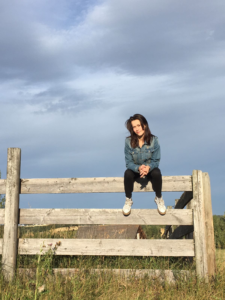This essay is excerpted from QWF Writes.
By K.B. Thors
“What do we call you?” is a question I’ve gotten used to hearing, especially in the writing world. I write now as K.B. Thors, but up until the end of 2017 I was publishing poetry, translations, and essays under the name K.T. Billey. My legal name is Kara Billey Thordarson. If I meet you, I’ll introduce myself as Kara.
That might seem all over the place, but the evolution of my nom de plume mirrors the development not just of my writing but of my self. I’d encourage any writer to experiment with their own creative license, no matter what a brand expert might say.
When I first decided to send my writing out, I knew immediately that I’d use a pseudonym. I wasn’t able to articulate this back then, but I was experiencing a common phenomenon—the need to step away from myself in order to grow into the voice I was finding through creative work. I needed room for my poems to breathe beyond ‘regular’ life. My pseudonym was a useful distancing tactic, tangled up in heritage, gender, and hiding.
Billey was my mother’s maiden name, the one she turned into Dr. Billey, working from a humble farm in Northern Alberta to become the first female dentist in my hometown, the name she kept after marriage. The Billey name taught my young self about gender as people regularly got confused, realizing that Dr. Billey was my mom, not my dad. I started writing the year after she died, and chose that name to keep it alive. I liked that it was nondescript and boyish, an anglicized Ukrainian that flies under the ethnic radar in a world that so often uses identity to pigeonhole and tokenize.
As for initials, I was never a J.K. Rowling fan but the story of how she used J.K. to reach boys who wouldn’t read books by “Joanne” stuck with me. Maybe I could trick male readers into reading cunt-positive poems! I also liked the sound of W.H. Auden, whose work I admire, though gendered aspects nagged at me. I spent a lot of energy fretting over whether I was contributing to the under-representation of women in literature by failing to show up as overtly femme in my bylines.
